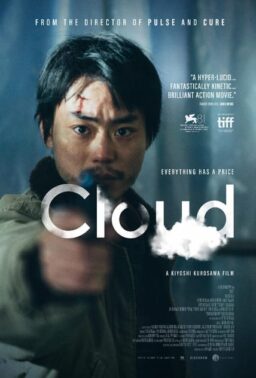One of the great joys of TIFF is being able to catch up with films that premiered at Cannes roughly four months earlier. It allows this staff to offer alternate takes on some of the biggest movies of the year, including the Palme d’Or-winning “Anatomy of a Fall.” We will hit some of the other Cannes films at other fests like CIFF and NYFF, but I was lucky enough to see an interesting trio from around three separate continents, including the latest from one of my favorite filmmakers working today and a movie that’s one of the essential films of 2023.
That film is Jonathan Glazer’s shattering “The Zone of Interest,” a drama that takes place during World War II but feels incredibly urgent in what it’s saying about existing alongside evil and how if we allow everyday life to drown out those who are suffering, we are bound to repeat the horrors of history. It’s a challenging drama that creeps into your soul. In my brief time in Toronto, I have already seen many films since “The Zone of Interest,” and yet it haunts me. I think about it constantly. It’s a hard film to shake.
Glazer (“Under the Skin“) opens his film with a long shot of a black screen with an increasingly loud soundscape that acts as an overture. It sounds mechanical, incorporating elements of a score by Mica Levi and the noises that will dominate the film to follow. It seems like a way to take viewers from the ordinary world into this film. Put down your phone. Pay attention. Listen. What you hear in this film will be as important as what you see.
Loosely based on the novel of the same name by Martin Amis, “The Zone of Interest” is set almost entirely on the property of Rudolf Hoss (Christian Friedel) and his wife Hedwig (Sandra Hüller, having an amazing year with this and “Anatomy of a Fall”). Hoss is the commandant of Auschwitz, which exists on the other side of the wall that separates his property from the concentration camp. Rudolf and Hedwig go about the routine of raising a family as thousands of Jews are murdered on the other side of the wall. And it all happens to a soundscape from Hell. As the children play and Hedwig gardens, the sounds of trains, gunshots, screams, and furnaces play ceaselessly in the background.
What does it mean to not only exist alongside genocide but profit from it? We have seen so many films that portray Nazis and historically evil people as caricatures. Glazer is careful not to humanize or defend these people, but he captures the ordinariness of daily life. Of course, Nazis went home from the camps and raised families right outside the horror of it all. Shot with a painterly composition that’s never exaggerated by the great cinematographer Łukasz Żal (“Cold War”), “The Zone of Interest” is mesmerizing despite its lack of melodrama or traditional narrative. Glazer challenges our perception of one of the most horrifying chapters of world history by revealing the mundanity of it all for those who committed atrocities.

Loyal readers will know how much I love Hirokazu Kore-eda, even standing outside the chorus that considered his 2022 drama “Broker” a drop in his usual quality. After two films in other countries (the other being the France-set “The Truth”), Kore-eda has returned to Japan with “Monster,” one of his most moving and unusually constructed films. This one sees Kore-eda working with someone else’s script (this one is by Yuji Sakamoto) and playing with form in ways the traditional filmmaker doesn’t usually. It’s a “Rashomon”-inspired drama that tells the same story from three perspectives, revealing how little we truly know about our children and culminating in some of Kore-eda’s most emotionally powerful filmmaking.
Minato (Soya Kurokawa) is a quiet but relatively trouble-free child who lives with his single mother, Saori (the excellent Sakura Ando). Saori starts to see changes in the middle schooler that grow increasingly troubling, including proclamations that he’s a monster and acts of self-harm. Something must be going on at school, right? When Minato reveals that a teacher named Hori (Eita Nagayama) has abused him, Saori meets a wall of unusual, defensive behavior at the educational facility, including a principal (Tanaka Yuko) who seems to be hiding something of her own. Hori reveals that Minato isn’t the victim; he’s been bullying another student.
Or has he? The narrative then shifts to tell roughly the same chapter of time from Hori’s perspective, and finally Minato’s. They each reveal new motives behind the unusual behavior of Minato and Hori that remind one that we shouldn’t presume anything about even our loved ones, especially when they’re in the emotionally fraught stages of childhood.
Kore-eda makes sparse use of a gorgeous score from the late Ryuichi Sakamoto—this is his last composition—and gently pushes “Monster” along a way that’s never exploitative (unlike the overrated “Close,” another study of childhood connection and trauma that felt forced to me). “Monster” is another striking piece of work from a master, a movie that’s so carefully calibrated that you get lost in these characters, forgetting they’re performers and not people caught up in a genuinely traumatic chapter of life. When “Monster” reaches an ending that I would call heartbreaking (but some consider ambiguous), it’s ascended to, if not the absolute top tier of Kore-eda’s work, right below it.

Finally, there’s the divisive “The Delinquents” from Argentinian New Wave director Rodrigo Moreno. His film is possibly the first slow-burn heist movie, a three-hour droll comedy about a pair of regular guys who steal money but end up staying pretty regulat. It’s a challenging film, one with undeniably self-indulgent pacing. It’s about 45 minutes of story in a 180-minute box, but that’s part of the point. Moreno even inserts a character in the form of a film director who discusses unexpected decisions in filmmaking in case you miss it. He wants to push against the envelope of what people expect from a movie that opens with a bank robbery, even if it’s the most mundane bank robbery in film history. I found parts of “The Delinquents” delightfully hysterical and admired the experiment throughout, but I’d be lying if I didn’t say I was bored for much of it. I think even Moreno would understand that.
Roman (Esteban Bigliardi) is an average bank worker in Buenos Aires who simply walks out with $650k (US) one day. He goes to his co-worker Moran (Daniel Elias) with a deal: Hide this money for 3.5 years, and we can split it when I get out of jail. He will turn himself in, do the brief mandatory time, and get out. And he’s not even taking that much, just what he would make over the rest of his life at the bank. He believes it’s better to do 3.5 years behind bars than 25 in a job you hate. It’s not a bad theory actually.
Moran takes the money to the countryside around halfway into “The Delinquents,” and the film shifts in tone, reflecting the laid-back, meandering nature of its new setting. Around here is where it will lose a lot of people, but there are charming choices throughout. What does it mean that the names of the protagonists (and even three people they meet) are anagrams? What does it mean that the same actor plays the boss at the bank as the guy who shakes down Roman behind bars? Why does Moreno take so long with his cinematic language? At one point, two characters talk in a car about going to a hotel, they’re seen walking into the hotel and then through the door of the hotel room. At least one, probably two of these shots could be on the editing room floor, but Moreno has so solidified his self-indulgent pace by this point that I laughed out loud. He wants you to feel the drag of life on these two men as they realize that money doesn’t change everything. It might make us even more ordinary.












